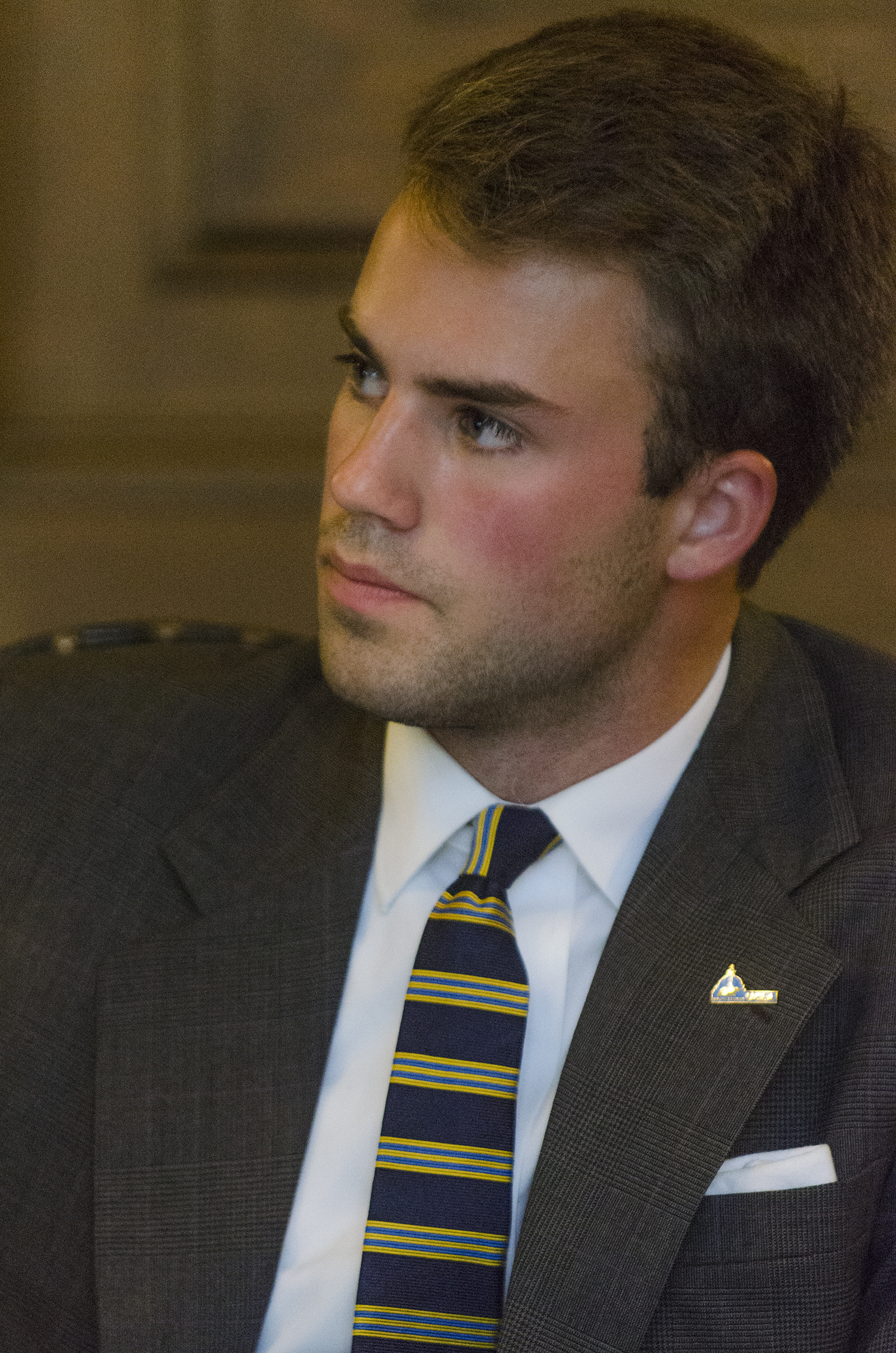USAC to launch Bruin Defenders student lobbying funding program

The Undergraduate Students Association Council External Vice President, Zach Helder, announced the office will be launching a student lobbying funding program in the fall. (Miriam Bribiesca/Daily Bruin senior staff)
By Shreya Maskara
Sept. 8, 2015 9:14 a.m.
Student groups on campus that want to lobby will be able to apply for significantly more funding through a new program under an undergraduate student government office in the fall.
The Undergraduate Students Association Council’s External Vice President’s office will be launching the program, called Bruin Defenders, which will have about $50,000 available in funding.
USAC External Vice President Zach Helder announced earlier at an August USAC meeting that the office will be advocating for student lobbying through two main programs, Bruin Defenders and a lobby corp.
This comes after the council withdrew in August from the United States Student Association, a national student-led organization that aims to organize students to address issues at local, state and federal levels, after Helder and several other USAC councilmembers questioned the effectiveness of the organization.
Helder said the lobby corps will be focusing on lobbying for national student issues such as the tuition increase, Pell Grant funding and financial aid at the federal level.
USAC had spent about $25,000 on USSA membership and sending students to USSA conferences. Helder added that finances of the External Vice President’s office will be reorganized and USSA membership funds will now be redirected toward student advocacy, allowing about $50,000 in funding for Bruin Defenders and about $30,000 for the professional lobby corps.
“Every student group with any claim to an advocacy commitment will be entitled to a liaison within our office,” Helder said.
Helder said student groups that apply for funding will attend a hearing with the Bruin Defenders team once a liaison has been assigned. To the team, student groups will explain the purpose of their lobby visit, the amount of money needed, number of people on the visit and other resources they’re asking the office to provide.
Helder added he thinks the Bruin Defenders program will help diversify the kind of groups that receive funding and increase the oversight of funding used for lobbying purposes because student groups will be applying for funding per project.
“There won’t be block grants given to student organizations but instead funding will be provided per issue or event for lobbying,” Helder said. “I think this will help student groups to take command over their own issues and foster greater leadership.”
Since 2009 until last year, the External Vice President’s office had a travel advocacy grant of about $9,000 that was available for student groups to apply to for student lobbying programs and trips.
Conrad Contreras, former USAC external vice president, said during his term, groups were not allocated money to pursue individual advocacy projects. Instead, students attended both University of California Student Association and USSA conferences to lobby and advocate for issues they wanted to fight for, including Pell Grant funding, tuition hikes and student representation on the UC Board of Regents.
Contreras added he thinks this approach was necessary because he said UCSA and USSA conferences are usually held during times Congress is in session so students have easy access to legislators.
Another UC campus that has had similar lobbying program is going back on its approach, however.
Student lobbying at UC Davis until 2013 was split into three different organizations that were individually responsible for federal, city and campus affairs, said Sam Alavi, president of the Office of Advocacy and Student Representation at UC Davis.
“We used to have an official lobby corps, but now we run a system in which any student who attends our lobbying workshops can come volunteer with us,” Alavi said.
Since 2013, the system has been reorganized and all student advocacy is housed under the advocacy and student representation office.
UC Davis also recently reinstated its membership to be a part of UCSA, an organization that aims to provide a collective voice to UC students through advocacy and direct action.
Mariah Kala Watson, president of Associated Students of UC Davis, said she thinks the main reason the different organizations were inefficient in helping student lobbying programs is problems with communication and accountability.
“We felt it was very difficult to hold these different units accountable for their actions so we decided to consolidate them under the office of advocacy over the course of the past three years,” Watson said.
Alavi added she thinks a major hinderance to student lobbying is the lack of funding available. She said the office only has about $6,000 available for travel related to lobbying and conference attendance.
During the USAC meeting in August, Helder said he thinks the lobby corp program will be more successful as USAC’s program has a higher budget than the lobby corp at UC Davis and access to more resources to facilitate effective lobbying.
Helder said student groups will be able to establish liaisons in the first few weeks of fall and apply for grants in the fifth and sixth weeks of the quarter.

